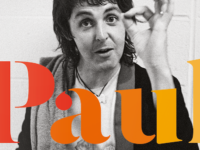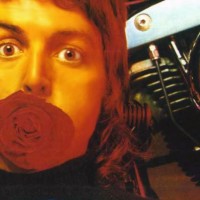Recorded in the summer of 1976, Wings Over America, arrived on Dec. 10 of that year feeling like a triumphant musical summation for Paul McCartney.
In stark contrast to his modern-day globe-trotting ways, McCartney hadn’t toured America at this point in 10 years – and those concerts dated to his time in the Beatles. Only one of his former bandmates had even attempted such a thing in the interim, and George Harrison’s 1974 stateside jaunt (staggered as it was by his throat problems) had been sadly underwhelming.
And so Wings Over America was greeted with what can only be described as unfettered joy. Highlights included not just the U.S. concert debuts of a number of 1970s hits with Wings but also (and this was of particular interest at the time) Fab Four favorites like “Blackbird,” “The Long and Winding Road” and “Lady Madonna” – all of which were recorded after the Beatles had stopped touring.
Of course, after so many successive McCartney tours (and so many concurrent live albums) in the years since he retook the road in 1989, much of that seems like quaint nostalgia. It’s much easier now to separate the music from the moment when it comes to Wings Over America. This multi-disc set can come off like the sum of its weakest parts.
That’s a big mistake. Sure, the second half of this set was far weaker than the first – as Paul McCartney and Co. delve into some of the most lightweight (but biggest selling, mind you) songs from their polyester-era oeuvre, including the smash “My Love” from 1973’s Red Rose Speedway, the 1975 Venus and Mars hit “Listen to What the Man Said,” and “Silly Love Songs” from their just-released Wings at the Speed of Sound.
Too often, it seems, Wings Over America threatens to run out of gas as it couples throwaways like “You Gave Me the Answer” and “Magneto and Titanium Man” or “Hi Hi Hi” and “Soily” with stronger material. Forget the Beatles retreads, too. They often feel too thin, and too rushed (in particular during the acoustic segment) and “The Long and Winding Road” is still a crashing bore, even without the gauzy Phil Specter strings.
Maybe it wasn’t the career exclamation point that it once seemed. But that doesn’t mean there isn’t much to recommend here. You’ll just have to take out the lesser items from Wings, and skip over the most of the tracks from his old band. The leftovers, however, actually make up the heart of Wings Over America, and it stands today (yes, even after all of those deletions) as some of the most vital work that Paul McCartney has ever done.
There remains, for instance, this fizzy rush of anticipation surrounding the album’s initial trio of songs – “Venus and Mars/Rock Show” combined with incandescent take on “Jet,” even now the best opening Paul McCartney’s ever constructed. Then there’s this set’s definitive version of “Maybe I’m Amazed.” And a remarkable take on “Call Me Back Again” from Venus and Mars, with Jimmy McCulloch’s blistering guitar matched stride for stride by a tough trio of horn players led by saxophonist Thaddeus Richard.
Wings Over America also stands as the pinnacle of Denny Laine’s often-overlooked career with Wings, from his featured vocals on “Spirits of Ancient Egypt” and “Picasso’s Last Words,” to a vital take of his Moody Blues-era hit “Go Now” and an admittedly less interesting cover of Simon and Garfunkel’s “Richard Cory.” But check out “Time to Hide,” a deep cut from Speed of Sound, where we find Laine brilliantly recapturing the raw emotion of his early R&B-sides with the Moodies.
Then, just when the mawkish distractions of “Let ‘Em In” threaten to sink the whole thing, Wings unleashes a feverish take on “Beware My Love” – another Speed of Sound track which, though tissue thin lyrically, begins a run of three muscular tracks: The Venus and Mars cut “Letting Go,” which is shot through with this jagged sexuality, and then the ageless “Band on the Run.”
If anything, an anniversary return to Wings Over America tends to underscore what time has wrought: Both McCulloch and Linda McCartney have passed, while drummer Joe English long since retired from the business. At the same time, though, you have to marvel at Paul’s dogged resiliency. Though he hasn’t worked with Laine since 1983’s Pipes of Peace, McCartney was still somehow out there touring, decades later.
At one point in a film that accompanied a subsequent reissue of Wings Over America, Paul McCartney is actually asked if 33 – his tender age at the time of this tour – is too old for rock ‘n’ roll. “It’s ancient,” Paul allows. “But I tell you what, you come to the show. If you like the show, you tell me if I’m over my peak after it, OK? And, if you tell me I am, it’s coats off outside!” I feel confident, no matter the odd misstep found on Wings Over America, that everybody’s outer garments remained in place.
- The Bright Spots in George Harrison’s Troubled ‘Dark Horse’ Era - December 29, 2024
- The Pink Floyd Deep Cut That Perfectly Encapsulates ‘The Wall’ - November 29, 2024
- Why Pink Floyd’s ‘The Endless River’ Provided a Perfect Ending - November 11, 2024




I never liked this album because it sounded to me like his voice was shot.
It definitely has a considerable rasp to it, in contrast with the original recordings he’s covering. But it’s not shot in the sense he can’t hit the notes. I have a feeling he kind of dug the sound of his voice this way, it’s a bit ragged and soulful. But also, generally I think the original mix of the record was not very great, and the vocals particularly suffer in that regard.
There’s no question he can hit the notes. He wouldn’t go on stage if he couldn’t. It just lost the youthful sweetness he had in the studio up until then (except for the “Wild Life” album which was terrible). A little better than Harrison’s voice at the time, but too dark and raspy, like he had strained it or had a cold and needed some down-time. The microphones or mixing may have worked against him, also. If he was going for Wilson Pickett, I’ll defer.
His voice is nowhere near shot on this album. If anything, especially maybe I’m amazed it’s better and more rockier.